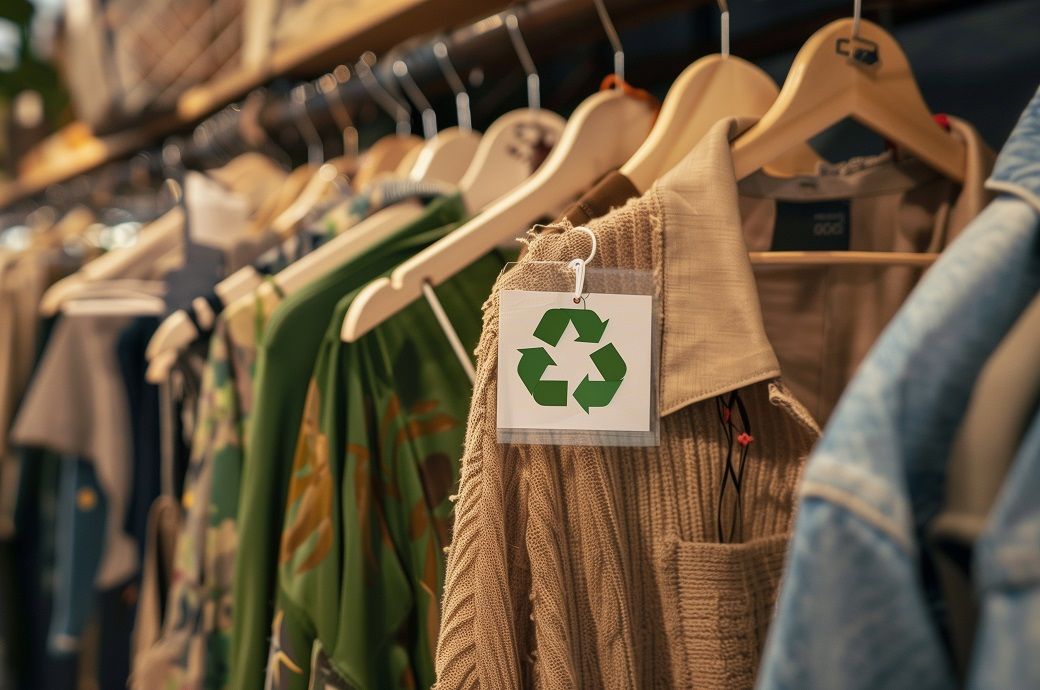
Big global fashion brands must urgently invest at least 2 per cent of their annual revenue into a just transition away from fossil fuels to renewable energy, according to the latest report from Fashion Revolution, a not-for-profit global movement.
The fashion industry remains one of the most polluting, with fossil fuels burned at every stage of production. Despite the escalating climate crisis, the report finds that big brands' reduction targets are insufficient to meet the global goal of limiting temperature rise to 1.5 degrees Celsius above pre-industrial levels.
The report criticises fashion brands for shifting the costs of transitioning to renewable energy onto the factories they work with, burdening workers and communities with the responsibility for fixing a problem they did not create. While extreme weather could cost nearly 1 million jobs in the sector, Fashion Revolution reveals that most big fashion brands are not protecting their supply chain workers, as per the ‘What Fuels Fashion’ report.
Only 3 per cent, or seven brands, disclose efforts to financially support workers affected by the climate crisis. This lack of support is critical given the weak social protection in garment-producing countries, where workers often face poverty wages and high debt levels. Frequent climate events like heat waves, monsoons, and droughts are devastating their livelihoods.
Fashion Revolution urges big fashion brands to provide compensation mechanisms for these workers, framing it as a matter of justice rather than charity. The report highlights several key findings, including the fact that nearly a quarter of the world's biggest fashion brands disclose nothing about their decarbonisation efforts. Only four out of 250 brands have ambitious emissions reduction targets that align with the United Nations' calls for action. Of the 117 brands with decarbonisation targets, 105 disclose updates on their progress, but 42 report increased scope 3 emissions against their baseline year. With the 2030 deadline to limit global warming to 1.5 degrees Celsius approaching, the industry faces a critical challenge.
The fashion industry is significantly lagging in achieving climate targets and reducing emissions. A staggering 86 per cent of companies lack a public coal phase-out target, 94 per cent do not have a public renewable energy target, and 92 per cent lack a public renewable electricity target for their supply chains. Less than half of the brands are transparent about their energy procurement at the operational level, and even fewer at the supply chain level. No major fashion brand discloses hourly matched supply chain electricity use, leading to potentially misleading zero-emissions claims.
Accountability is another major issue, with most big fashion brands failing to disclose the number of clothes they produce annually. Nearly half do not disclose their raw material emissions footprint, indicating a prioritisation of resource exploitation while avoiding accountability for environmental harms. The fashion industry's climate impact has often been scrutinised through the materials used rather than the manufacturing processes behind them. While 58 per cent of brands disclose sustainable material targets, only 11 per cent reveal their supply chain’s energy sources, meaning 'sustainable' clothes might still be produced using fossil fuels.
The report also emphasises the need for funding, not debt, for suppliers. Despite being the largest emitters with the greatest financial responsibility to decarbonise, nearly all big fashion brands fail to disclose their investment in supply chain decarbonisation. Only 6 per cent disclose contributions, often to joint climate funds, which offer supplier loans for infrastructure like solar panels. This practice perpetuates existing power imbalances between fashion brands and their suppliers.
Long-term investment is crucial for decarbonising fashion’s supply chains. The industry's focus on short-term profit is at odds with the need for a clean, fair, and just energy transition. Vertically integrated brands and specialised segments like sportswear outperform others due to greater leverage and commitment to long-term improvements. The renewable energy transition in fashion hinges on systemic changes that prioritise collective brand action, responsible purchasing, and investment in a stable supply base.
The overall average brand score in the report is 18 per cent. The highest scoring brands are Puma (75 per cent), Gucci (74 per cent), and Hennes & Mauritz (61 per cent), among others.
Fibre2Fashion News Desk (DP)